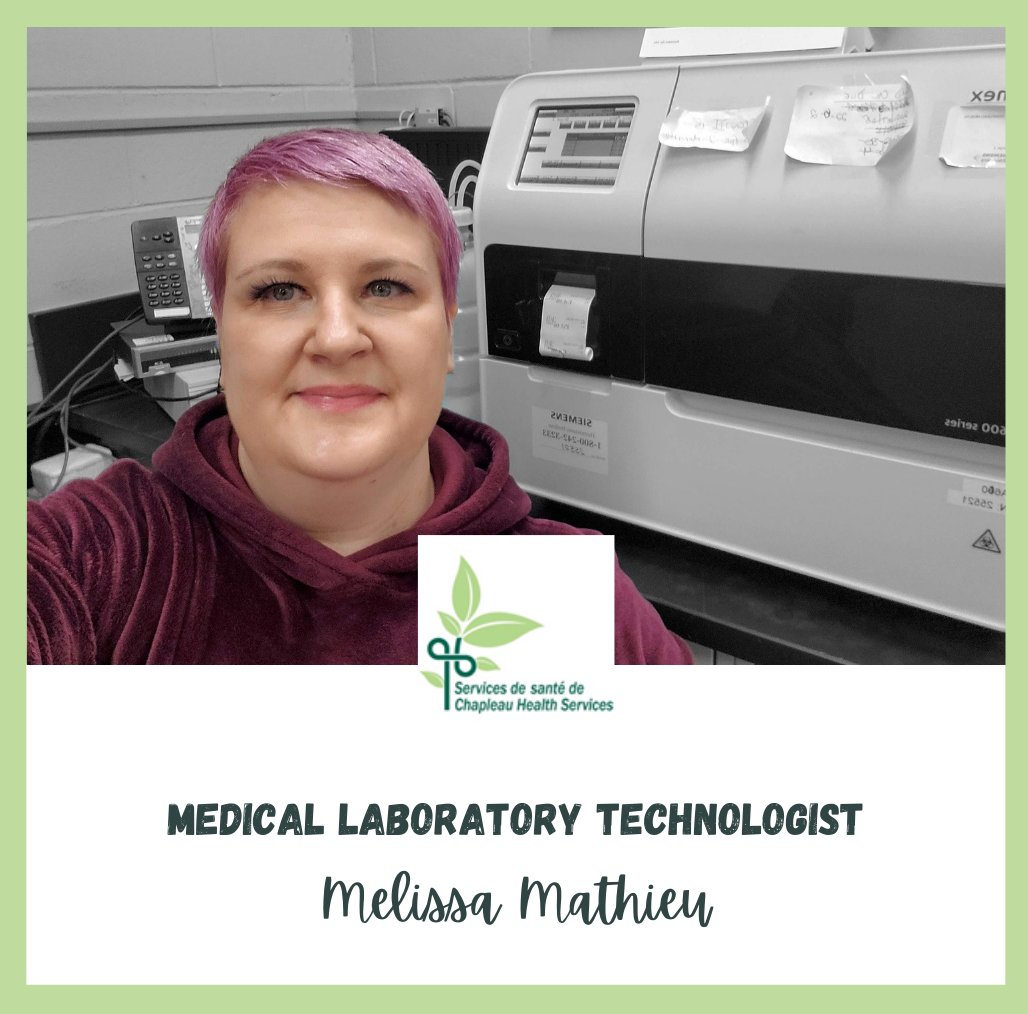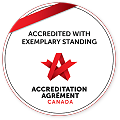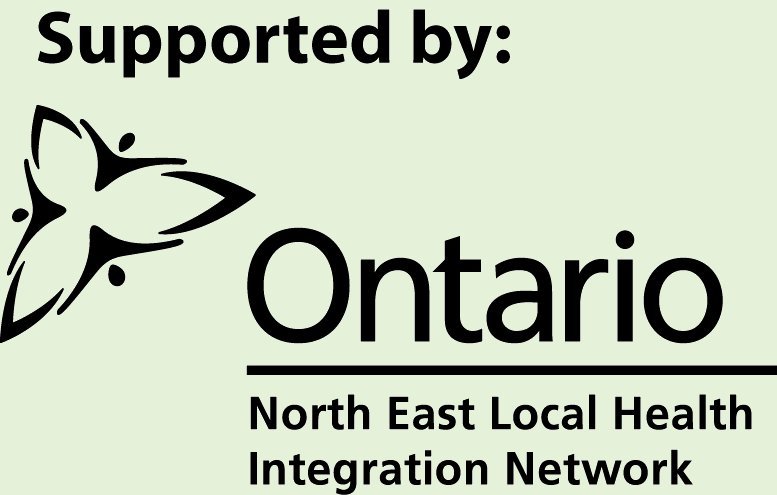Employee Spotlight

Q. How long have you been working for SSCHS?
A. Seven months now.
Q. What made you decide to get into this field of work?
A. I've been in this field for 13 years in September. I worked in genetics research prior to that and I wanted to do something more in the healthcare field. I had started having some health issues, along with family members, so I was interested and thought that maybe I could contribute. I went back to school and got my med lab tech diploma and haven't looked back since.
Q. Can you describe what a typical day is like for you?
A. Essentially we come into the lab and we start with daily maintenance. All the analyzers require maintenance every day to ensure they're working properly. We run quality control, then we receive specimens from out-patients phlebotomy. Each sample needs to be checked to make sure the stability is in a certain time frame, the quality is good, and if the specimen might require additional testing we enter that into the report to make sure the physician knows it might be compromised. Then we put it on the analyzer. At the moment we have six different analyzers and they all have a different function. We run multiple types of tests on the analyzers.
Once the results come out, we go to Meditech and we correlate the results. If we're looking at liver function tests and if it's elevated, it might be a random error or there might be a diagnostic reason for it. We analyze each specimen to make sure the results are correct. Once we do this analysis, we send the report to the physician and then it's out of our hands. Since last January we've also been doing COVID swabs so we do those throughout the day.
Q. Who do you interact with the most at work?
A. Mostly my colleagues, but we also have a fair bit of interaction with the nurses and physicians because in some cases we do have to discuss results of tests where we believe there might be a reason for performing other tests. We might also ask the RNs if the patient is on a particular medication or if they have a condition that would affect their results.
Q. How would your co-workers describe you?
A. I think they'd say I'm a positive person and that I do try to bring up the mood. Hold on, I think I should ask Martha.
*Discusses with colleague Martha.
She says I'm outgoing, easy to communicate with, and I work well with others.
Q. What's the best part about your job?
A. Knowing that what I'm doing in the lab is so important for the diagnosis of patients. Whether it's an in-patient, out-patient, or an emerge patient. A lot of the time the physician is counting on the proper results getting out so they can do a proper diagnosis. It makes me feel good that I'm helping the physician in their diagnosis or treatment.
Q. Why should someone consider a career with SSCHS?
A. The people around here are great. They're super friendly and I get along with everyone. It's stressful and busy, but we still have the possibility of just talking to each other, being friendly, having a conversation. Everyone has been so welcoming.
Q. What are some of your interests outside of work?
A. I used to do ballet, I loved ballet. I do sometimes have fun with Latin dancing. I'm also a video gamer. People will probably be surprised to hear that.










